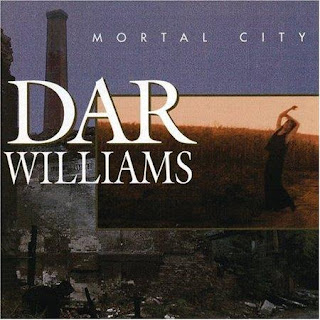The men's group I attend at St. Paul's United Methodist Church recently discussed a perhaps improbable article from The Christian Century on heavy metal music (Holloway 2024). Writer Jack Holloway discovered the music of Black Sabbath while studying apocalyptic literature at seminary. Black Sabbath, he wrote, "prophesied an end to war, an end to the reign of the politicians and generals who make war. Was it possible this evil band was reading the Bible more faithfully than the preachers I'd heard growing up?"
 |
| Geezer Butler, bass player and composer of "War Pigs" |
That led us to a group project in which each of us would present a song we consider meaningful. There were various other instructions, too, which I ignored, and it would seem the others did, too. The eventual collection included songs by Carrie Newcomer, Susan Werner, the Beatles, the Eagles, and James Taylor (two), as well as Leonard Bernstein, John Williams, and Beethoven--understandable for a group of men born between 1945 and 1960 (except for one swing shift worker born in 1992, who brought us "Reach for the Sky" by Social Distortion). We played and discussed 11 songs in about an hour, which unfortunately didn't leave much time for discussion.
My contribution was "The Christians and the Pagans" by Dar Williams, from her 1996 sophomore album, Mortal City. (The title song from that album made this urbanist playlist I made in 2013.) In a light-hearted way, the song tells the story of two young women (in a romantic relationship, Williams added at a concert I attended a few years later) who celebrate the solstice in some natural locale, then pop over to one of their uncles' for Christmas. The resulting cultural clash is restrained due to politeness, but keeps popping out in amusing ways. Always, however, family and common humanity outweigh seemingly incomprehensible religious differences.
Jane and I were having solstice, now we need a place to stay...
Listening to the song yet again, but this time in the company of a dozen first-time hearers, I was struck by two things. First, there clearly is more to the story, which Williams leaves to the listeners' imaginations. Did the young women just happen to pick a spot near the uncle's house, or was it part of a plan? Why hadn't the uncle spoken to his brother in a year? How if at all was little Timmy changed by his encounter with his strange but cool cousin? Secondly, as I'm learning about phrasing from singing in the chancel choir, I was struck how Williams's breathing creates phrases of varied lengths (sometimes four measures, sometimes one or even part of one) to convey different emotional states.
Christmas is like solstice, and we miss you...
My other impressions of the song are 28 years old; thanks to local advocacy of Williams's early work by the Legion Arts organization as well as Iowa Public Radio, I was familiar with the songs on Mortal City almost as soon as it was released. 1996 was a good time for me to receive this message. For probably the first 25 years of my life, I had swum rather unreflectively in a mainline Protestant sea. It was just the world in which I lived. Only in my peripatetic 20s did I encounter devout members of other faiths, not to mention people who did Christianity very differently than I did. I occasionally found myself in faith communities whose Christianity tended to insist on itself (an allusion to I Corinthians 13:4).
Sending hope for peace on Earth to all their gods and goddesses...
By 1996, I had had enough conversations, read enough books, and found a church that helped to clarify my desire to worship and live inclusively rather than exclusively. I'm still a Christian, but I have come to see other religions as complementary rather than opposing ways of understanding God. I have come to understand a lot of non-theistic worlds as rooted in God, though not the too-narrow definition of God we are taught in the West. I think this is a good basis for community. Urbanism requires seeing commonality across differences, rather than rushing to draw lines of distinction.
Where does magic come from? I think magic's in the learning...
Dar Williams continues to record and perform around the country. In 2017 she published What I Found in a Thousand Towns (Basic Books, 2017), an urbanist's tour of places where she's performed that have succeeded in building community. It reads like one of her songs: not a word out of place, good stories about people trying their hardest, and inspiring without being saccharine. Her concept of "positive proximity" (introduced on p. xi!) derives from Jane Jacobs on the importance of causal encounters; she shows how places that enable those encounters allow for connections that lead to community building (or rebuilding). But then people in those places have to do the connecting.
Translation is the magic ingredient that makes successful towns and cities happen. Translation is how we spell ourselves out to each other and the world. A willingness to share our skills, our stories, and ourselves with each other marks the difference between towns that feel like actual places and those with people who jump in and out of cars all day... When people truly arrive at some sort of communication, putting themselves forward and welcoming others in, we have positive proximity circulating and growing. (2017: 177)






No comments:
Post a Comment